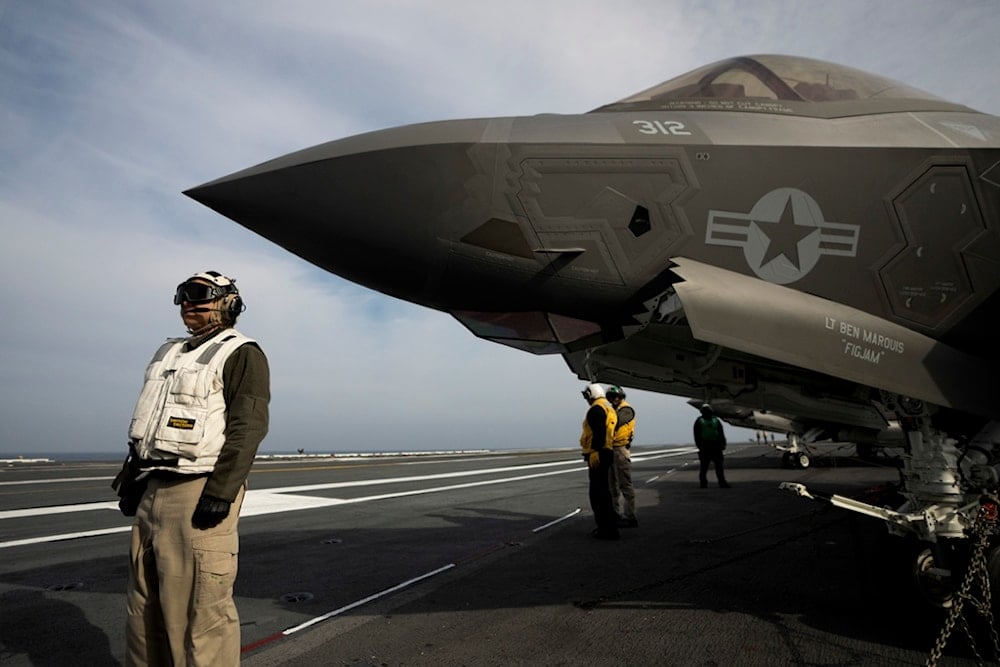Delayed upgrades pose weather damage risk to US' new F-35 fighters
According to Bloomberg's findings, Lockheed Martin, the manufacturer of the F-35, is slated to deliver between 75 and 110 of these jets this month.
-

US Navy sailors stand beside an F-35 fighter jet on the deck of the nuclear-powered aircraft carrier USS George Washington during joint exercises off the coast of Argentina, Thursday, May 30, 2024 (AP)
Recent reports from Bloomberg have highlighted a concerning situation for America's fleet of F-35 fighters, revealing that dozens of these advanced aircraft could be vulnerable to significant weather-related damage due to delays in crucial software and hardware upgrades.
According to Bloomberg's findings, Lockheed Martin, the manufacturer of the F-35, is slated to deliver between 75 to 110 of these jets this month.
Each aircraft carries a price tag ranging from $82.5 million to $109 million.
However, the delay in the TR-3 hardware and software upgrade, originally scheduled for completion by July 2023, has left these newly delivered F-35s parked at an airfield in Fort Worth, Texas, exposed to potential weather risks.
Read more: Upgraded F-35 jets fail to meet requirements, put on hold
The Pentagon, responsible for these aircraft while awaiting upgrades, could face substantial repair costs exceeding $100,000 per jet, beyond which Lockheed Martin would cover expenses.
This scenario arises from the possibility of severe weather conditions, including hail and winds up to 60 miles per hour, which could potentially damage the parked aircraft.
As of now, the Pentagon's F-35 program office has confirmed that none of the parked jets have incurred damage.
However, concerns remain elevated as the summer season progresses, bringing increased risks of severe storms.
Read more: Rights grps take Dutch gov. to court again over F-35 parts to 'Israel'
In mid-May, the Government Accountability Office (GAO) reported that ongoing issues with both the hardware and software of the F-35 Joint Strike Fighter's Technology Refresh 3 (TR-3) upgrade program have resulted in delays, pushing back the delivery of the new system and its installation in existing aircraft until next year.
"The F-35 program is facing a range of issues due to the late deliveries of TR-3 hardware and software," the report said. "These challenges, collectively, will delay the full delivery of TR-3 with new capabilities until 2025."
According to the report, the supplier responsible for producing the integrated core processor is delivering this component late and with quality issues.
Concerning software, challenges with aircraft software supporting radar and electronic warfare systems "have been especially prevalent, with some test pilots reporting that they had to reboot their entire radar and electronic warfare systems mid-flight to get them back online."
In late June, Lockheed Martin Aeronautics secured a significant contract exceeding $1.5 billion from the US Navy.
This contract aims to bolster logistics support and pilot training for the F-35 Lightning II Joint Strike Fighters already delivered, further underlining the ongoing operational and logistical challenges facing the F-35 program.

 3 Min Read
3 Min Read








